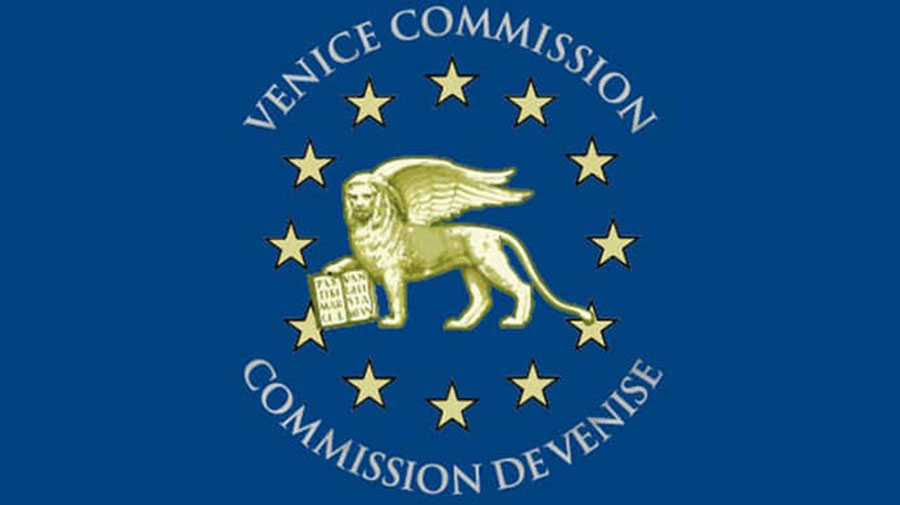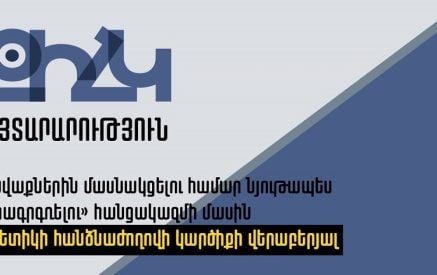The Venice Commission has published a new opinion on Armenia’s draft law on national minorities. The opinion was adopted at the latest plenary session on 21-22 June 2024. It was prepared jointly by the Venice Commission and the Council of Europe Directorate General of Democracy and Human Rights (DGII).
The conclusions are below:
VI. Conclusions
Read also
70. At the request of the Minister of Justice of Armenia, the Venice Commission and DGII have assessed the Draft Law on National Minorities.
71. The Draft Law on National Minorities is a welcome legislative initiative, which is likely to contribute to bringing the legislation pertaining to the protection of national minorities in Armenia in line with the applicable international standards. The Venice Commission and DGII welcome the efforts by the Republic of Armenia to resume the preparation of the new legal acts on the protection of national minorities and on non-discrimination, which have been in the process of drafting for many years. They nevertheless recommend that the Armenian authorities submit the Draft Law on National Minorities to public consultations and ensure that persons belonging to national minorities, not limited to the members of the Council for National Minorities, have an opportunity to participate actively in such consultations.
72. While recognising that the Armenian authorities have made steps in the right direction, the Venice Commission and DGII note that the Draft Law on National Minorities is not a comprehensive legal act regulating all aspects of the legal status of persons belonging to national minorities. It needs to be read in conjunction with certain other legal acts, which have not however been submitted to the Venice Commission and which therefore are not assessed in any detail in this opinion. Further harmonisation between the different laws would be required to ensure foreseeability, harmony and clarity, such as adding clear cross-references between the draft law and other sectoral legislation. In this context, it is particularly recommended to specify the references to the relevant provisions of other laws and to better reflect the principle lex specialis derogat generali.
73. The Venice Commission and DGII furthermore note that the Draft Law contains certain important limitations and there is uncertainty as to its scope (see paragraphs 26, 27, 28, 29, 33, 34, 37, 40, 41, 44, 54, 56, 57, 58, 61, 67, 69), which is likely to hamper its practical implementation. It is recommended to address these shortcomings with the necessary revisions, with a view to making the draft more easily operational and improving its quality. This would also ensure that the draft is fully in line with international and European standards.
74. The Venice Commission and DGII are of the opinion that the Draft Law should promote measures to achieve full and effective equality between persons belonging to national minorities, among people belonging to different minorities and those belonging to the majority. In addition, the Draft Law should encourage a spirit of tolerance and intercultural dialogue as per Article 6 (1) of the FCNM62 and it should contain effective measures to promote mutual respect and understanding and co-operation among all persons living on their territory of Armenia.
75. Throughout the opinion, the Venice Commission and DGII identified several aspects of the law which are in need of further clarification and revision. The most important recommendations are the following ones:
a) The Armenian authorities should reconsider the requirement of “historical formation in the Republic of Armenia” as part of the definition of national minorities. They should also make the list of national minorities contained in Article 3(3) non-exhaustive and establish a mechanism allowing for future recognition of other groups which want to apply for the status of a national minority.
b) The threshold foreseen in Articles 9(3) and 14 should be based on an analysis of the situation at the domestic level (impact assessment) taking the minorities’ population repartition into account so as to avoid an excessively high threshold which would deprive the provisions of their effectiveness in practice.
c) The provisions regarding the right to education for children belonging to national minorities should be more committal for the authorities by imposing specific obligations on the state. In addition, further specification is needed regarding the notion of “coverage of the permanent residence” in Article 10(1). The question of the applicability and scope of the threshold in the case of non-state general educational institutions (Article 10(2)) should be clarified, and Article 10(3) should explicit the state’s contribution to the development of programmes, literature and training.
d) The Draft Law should contain rules on the nomination and selection of members of the Council for National Minorities. Strong powers of the Prime Minister in this area should be avoided.
e) The mandate of the Council should be clarified so as to ensure the effective participation of minorities in decision-making where relevant through their involvement in the Council.
76. The Venice Commission and DGII remain at the disposal of the Armenian authorities for any further assistance in this matter.
Full text


























































